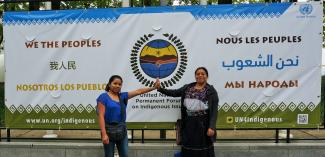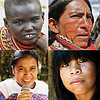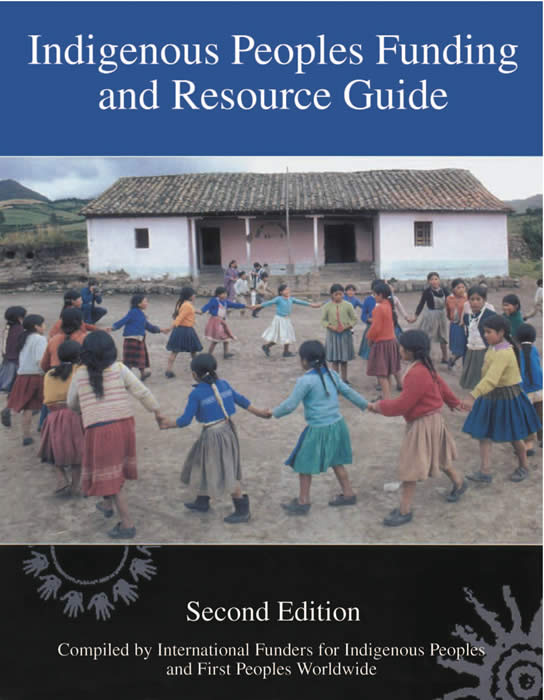
Human Rights recognize the inherent dignity and equality of all humans. They are:
• Universal—they belong to everyone, and apply equally to all people. All governments are equally accountable for upholding these standards.
• Interdependent—they are interconnected; often one right depends on the fulfillment of another.
• Inalienable—Human rights are inherent to each person and cannot be taken away.
What is a human rights advocacy framework?
A human rights framework is based on a set of principles enshrined in international treaties and declarations that promote the dignity of all people and peoples, that all humans have rights. These principles are universally agreed upon and enshrined through United Nations documents such as the Universal Declaration of Human Rights (UDHR), the International Covenant on Civil and Political Rights (ICCPR), the International Covenant on Economic, Social and Cultural Rights (ICESCR), and the United Nations Declaration on the Rights of Indigenous Peoples (UNDRIP) as well as other international documents. These international standards can be used by advocates for social justice in order to develop strategies for change. Citizens can hold governments accountable for their obligations to respect, protect, and fulfill human rights. The rights based approach focuses on process and outcome, emphasizes realizing rights, recognizes individual and group rights as claims towards legal and moral duty-bearers, strengthens the accountability of duty-bearers, empowers individuals and groups to claim their rights, and focuses on structural causes of problems and their manifestations. Traditionally, the governments of States are responsible for upholding human rights of their citizens. They are obliged to respect (not allowed to violate rights), protect (should restrain others from violating), and fulfill (enable the delivery of) human rights. However the responsibility to uphold human rights extends equally to individuals, organizations, corporations, government, and all other institutions. Ultimately, the responsibility to make human rights a reality lies with all of us through education, monitoring, and advocacy around standards. It is up to the State to ensure that services such as healthcare, housing, sanitation, education, access to food etc., are:
- Available: sufficient in quantity
- Accessible: physically, economically, linguistically
- Acceptable and Appropriate: respecting culture, gender, age, ability
- Of adequate quality: scientifically, technically or medically appropriate
- Non-discriminatory
- Participatory: in planning, delivery, monitoring and evaluation; access to information regarding services, and means of remedy
When it comes to economic social and cultural rights, when resources and capacity are a limiting factor, the government has an obligation to progressively realize these rights and not to retrogress, meaning not to go to lesser or worse commitments than it has already fulfilled.How are international human standards useful at the local level?Integrating human rights standards into your local work provides for a shared vision, a common framework for social and political change, organizations do not have to reinvent standards from scratch and they gain international legitimacy when using them. International standards provide mechanisms for accountability because international human rights documents are legally binding or carry moral and political force, therefore governments, corporations, and individuals can publicly be called upon to live up to their obligations. Local ratification and implementation of human rights documents can bring international human rights standards into our communities. Local implementation can ensure that international standards improve the lives of communities for the long-term. Adoption of international standards through passage of ordinances in our cities, municipalities, and departments sends a strong message to elected officials that national ratification and implementation are important to their constituencies.
Tool Kits
- Turning Rights into Reality: A Guide to Free, Prior, Informed Consent
- Know Your Rights! A Guide to the UN Declaration on the Rights of Indigenous Peoples for Indigenous Youth
- Protecting Your Community Against Mining Companies and Other Extractive Industries: A Guide for Community Organizers
- Oxfam's Guide to Free Prior Informed Consent
- Community Guide to the UN Declaration on the Rights of Indigenous Peoples
- Asia Indigenous Peoples Pact's Training Guide on the UN Declaration on the Rights of Indigenous Peoples
- Frequently Asked Questions About the UN Declaration on the Rights of Indigenous Peoples
- ILO 169 Guide: Indigenous and Tribal Peoples' Rights in Practice
- Indigenous Women’s Rights
- Database for Indigenous Women’s organizations
- United Nations Resource Kit on Indigenous Peoples’ Issues
- Radio Programs on Indigenous Peoples Rights for broadcast
- Toolkit on the Inter-American human rights system for indigenous women
International Documents on Indigenous Peoples Rights
 UN Declaration on the Rights of Indigenous Peoples
UN Declaration on the Rights of Indigenous Peoples
- International Labour Organization Convention No. 169 and 105
- Convention on Biological Diversity
- Convention on Rights of the Child
- Convention on the Elimination of All Forms of Discrimination against Women
- Outcome Document of the World Conference on Indigenous Peoples
- Convention Concerning the Protection of the World Cultural and Natural Heritage
- Declaration of the Indigenous Women of CSW57
- UN Report on the State of Indigenous Peoples
International Bodies and Mechanisms Working on Indigenous Issues
- Expert Mechanism on Indigenous Issues
- Special Rapporteur on the Rights of Indigenous Peoples
- International Labor Organization
- Inter-American Commission on Human Rights
- UN Economic and Social Council
- International Coordinating Committee of National Institutions for the Promotion and Protection of Human Rights
- List of Mandates for Human Rights Bodies
- How to submit information to Special Procudures
- International Standards on Cultural Rights
- Universal Periodic Review- UPR Info
Cultural Survival Reports on Indigenous Rights Violations
- UN Treaty Body Reports and Universal Periodic Review Reports
- When the Police are the Perpetrators: An Investigation of Human Rights Violations by Police in Samburu East and Isiolo Districts, Kenya
- Human Rights and Anthropology
Funding Resources For Indigenous Peoples
The Indigenous Peoples Funding and Resource Guide, which was developed by International Funders for Indigenous Peoples, has been distributed to hundreds of Indigenous communities and nonprofit organizations in both English and Spanish.
http://www.un.org/development/desa/dspd
http://www.ohchr.org/EN/Issues/IPeoples/IPeoplesFund/Pages/IPeoplesFundIndex.aspx
Emergency Relief Funders
Keepers of the Earth Fund

